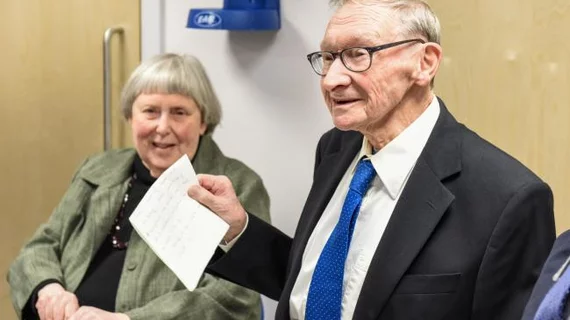James Hutchinson, inventor of world’s first full-body MRI, dies at 77
James Hutchinson, PhD, former medical physics scientist and inventor of the world’s first full-body MRI scanner, died at the age of 77 on Tuesday, Sept. 4, according to a report published online Sept. 11 by Scotland’s The Press and Journal.
Hutchinson, former professor at the University of Aberdeen in Scotland, built the “Mark 1” whole body MRI scanner in the 1980’s and co-invented spin-warp imaging still being widely used today in MRI machines around the world.
“Without doubt, he was the most capable scientist I ever met. He knew about everything, not just about MRI. He had an incredibly broad knowledge of science and engineering,” David Lourie, PhD, told The Press and Journal. Lourie joined Hutchinson’s MRI team in the 1970s as a young researcher despite doubt from the scientific community surrounding the technology.
After developing an expertise in magnetic resonance during his doctoral program, Hutchinson began working alongside Aberdeen University’s medical physics team in the 1960s.
“Professor Hutchison will be remembered as a true pioneer of MRI technology. Along with the team around him, they changed the face of medical imaging – an impact still felt today with the use of their techniques in modern MRI machines,” said Steve Heys, PhD, head of the University of Aberdeen School of Medicine, Medical Sciences and Nutrition.
See the full story below.

